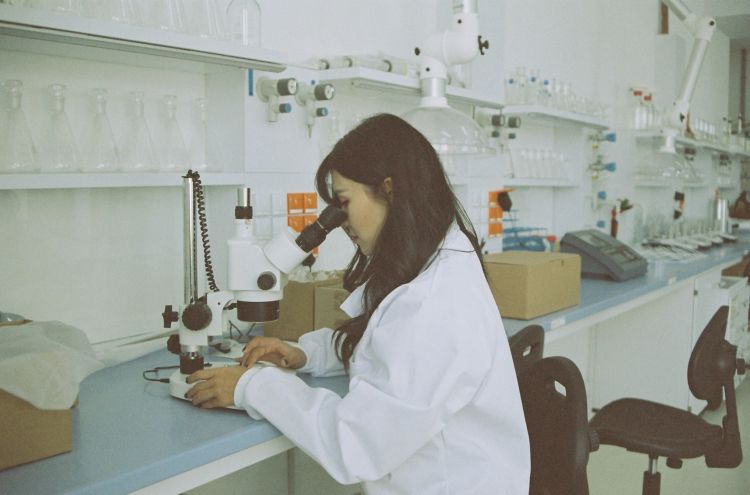STEM Teachers Across Georgia Given Chance to Bring Labs to Life
Georgia BioEd Institute Announces Renewed Funding to Support Life Science Education
Georgia BioEd Institute announced renewed funding today that supports STEM education in school systems across Georgia that will provide teachers with the training and equipment they need to better prepare students for the Georgia workforce.
For the second year, Georgia BioEd has been given funding for the Rural Teacher Training Initiative (RTTI) to provide training on laboratory experiences for teachers in rural areas. To further enrich STEM classes, the Georgia BioEd Institute works with local industries to support the Equipment Depot, which is a ground-breaking program that provides donated lab supplies to enhance STEM education in Georgia’s classrooms. The Equipment Depot, the only one of its kind on the East Coast, has recently expanded to provide even more STEM support to Georgia’s teachers. In its first year, these programs provided training to 72 teachers from 23 schools across the state, impacted 11,500 students, and accepted close to $200,000 in industry equipment donations for classrooms.
With almost 2500 square feet, the Equipment Depot is large enough to accept and store more donated equipment and easily allow educators to reserve and pick up equipment to utilize in their classrooms. In addition, RTTI will continue to help strengthen Georgia’s life science workforce pipeline through proven teacher trainings and equipment support. In fact, during this challenging time, Georgia BioEd has also been able to offer virtual alternatives for labs to ensure students still get the best quality education during the pandemic.
“The life science industry is $21 billion and growing in the state of Georgia,” says Maria Thacker-Goethe, CEO of Georgia Bio. “If we want to be a leader in life sciences then we need to start in our schools, and this means we need to equip our teachers with the right tools to successfully teach STEM. Our goal is to our expand our community of STEM educators and strengthen our industry.”
Lack of equipment is one of the top reasons stated by teachers as a barrier to perform more STEM labs with their students in Georgia schools. The Equipment Depot solves this challenge by collecting lightly used, last generation, and surplus equipment, supplies, and consumables from industry. The Georgia BioEd Institute gets them into the schools for use in STEM labs. A bonus is that these donations also help the environment, keeping thousands of pounds of equipment out of landfills. In the last 12 months, the Equipment Depot has processed almost 4,000 pounds of donations.
“A signature aspect of our training is that we provide equipment to all participants, not just for the training, but also to use in the classroom to implement lessons with students,” said Georgia BioEd Institute Director, Kristin Boscan. “After all, it’s the students who are our future workforce. We need to get the skills, concepts, and inspiration to them. This funding is a win for STEM education.”
Continued funding from the Department of Education to the program partner, the Georgia Youth Science & Technology Centers (GYSTC), will advance the RTTI program. Georgia BioEd expresses our gratitude to the following state legislative leadership for helping to make this valuable initiative real to the benefit of all Georgians: Governor Brian Kemp, Lt. Governor Geoff Duncan, House Appropriations Chairman Terry England, Senate Appropriations Chairman Blake Tillery, House Appropriations Education Subcommittee Chairman Robert Dickey, Senate Appropriations Education Subcommittee Chairman Ellis Black, Senate Agriculture Chairman John Wilkinson, and House Ethics Chairman Randy Nix. We want to especially thank the late Jack Hill, former Senate Appropriations Chairman.
To learn more about Georgia BioEd Institute, RTTI, tour the Equipment Depot, and where to donate, please visit https://gabio.org/georgia-bioed/. All are invited to attend the virtual Grand Opening of the Equipment Depot , Wednesday, September 16th, 4:30 – 5:30 p.m.
The post STEM Teachers Across Georgia Given Chance to Bring Labs to Life appeared first on Georgia Bio.





